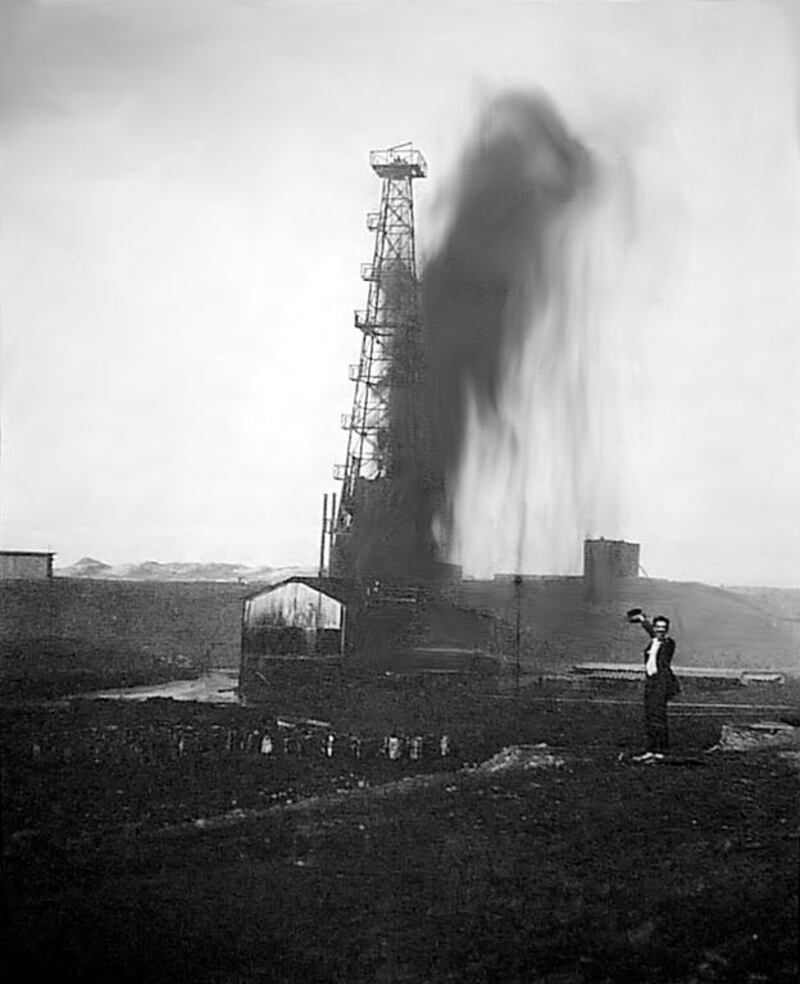David Rockefeller, one of the last links to the founding era of the oil industry, died last Monday.
Living to the age of 101, he was the last surviving grandchild of John D Rockefeller, who as architect of Standard Oil was the richest American ever. Adjusted for inflation, John D’s fortune in 1913 reached the equivalent today of US$336 billion.
John D created the oil business’s first governing paradigm, while David, €€as the chief executive of Chase Bank, now part of JP Morgan, observed the next three paradigms. His death comes just as another industry model emerges.
Before Standard Oil, the US oil business – then most of the world’s total – was a dynamic but chaotic business. Prices, in today’s money, went from $13 per barrel in 1861 to $122 in 1864, then back to $24 by 1874. Rockefeller transformed that by vertical integration. First dominating the refining industry, he then built up his own transportation system of railway tank cars and pipelines, finally new mid-continental oilfields, stabilising output growth and prices.
During Standard Oil’s existence, the price of kerosene fell by 80 per cent. David wrote in his memoirs that, “the ultimate result of grandfather’s consolidation of the oil business was a cheaper, better and more reliable supply of petroleum”.
But contemporaries did not see it that way. John D was portrayed as one of the original “robber barons”, the dominant figures of the late 19th century “Gilded Age”, when the banker JP Morgan, the steel magnate Carnegie and the rail tycoon Vanderbilt built monopolies, drove competitors to the wall with price wars and controlled their workers with strike-breakers and private detectives.
Eventually the Rockefeller empire was broken up by order of the US Supreme Court in 1911, the biggest pieces becoming ExxonMobil (itself an amalgamation of two Standard companies), Chevron, Conoco and Amoco (now part of BP). Yet the companies’ individual values soared, increasing John D’s fortune by a factor of five over the next decade.
Standard’s vertical integration brought professionalism and economies of scale, and an end to the early boom and bust of price cycles. As Rockefeller acknowledged, though, monopolies beget competition: by the 1890s, Shell was shipping Russian oil to Asia in new seagoing tankers and outcompeting Standard.
The original edifice has spawned two imitators; firstly there were the “Seven Sisters” of international oil companies, which controlled the main fields of the Middle East, and so set the price from the 1928 Achnacarry cartel agreement up to the early 1970s. Since then, Opec has episodically sought to coordinate its members’ output and hence world prices.
David Rockefeller observed the effects of the first boom, when prices went from $11 per barrel in 1970 (in today’s money) to $56 in 1974. Visiting Abu Dhabi that year, he described small adobe houses sprawling haphazardly on unpaved streets. Just two years later, “international skyscrapers were under construction … Abu Dhabi had become a modern city”.
At its peak, Standard Oil controlled 90 per cent of US oil refining, a position of dominance never approached since. Opec’s own share of world production has only crept over 50 per cent in two years, 1973 and 1974. So although the Opec era, from about 1970 onwards, has experienced much higher average prices than in the 1950s and ‘60s, they have also been much more volatile. Repeatedly, non-Opec competitors have emerged.
The latest of those, the US shale phenomenon, has imitated the wildcatting frenzies that so infuriated the orderly-minded John D. It has shaken Opec, but although ExxonMobil and other Standard descendants are moving in, they cannot collude or monopolise. No one knows what the new paradigm will be, but there is no Standard shale on the horizon.
Robin Mills is the chief executive of Qamar Energy and the author of The Myth of the Oil Crisis
business@thenational.ae
Follow The National's Business section on Twitter





